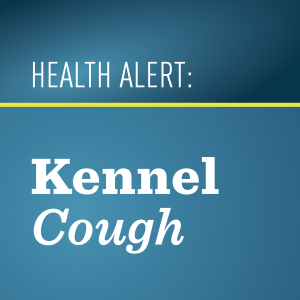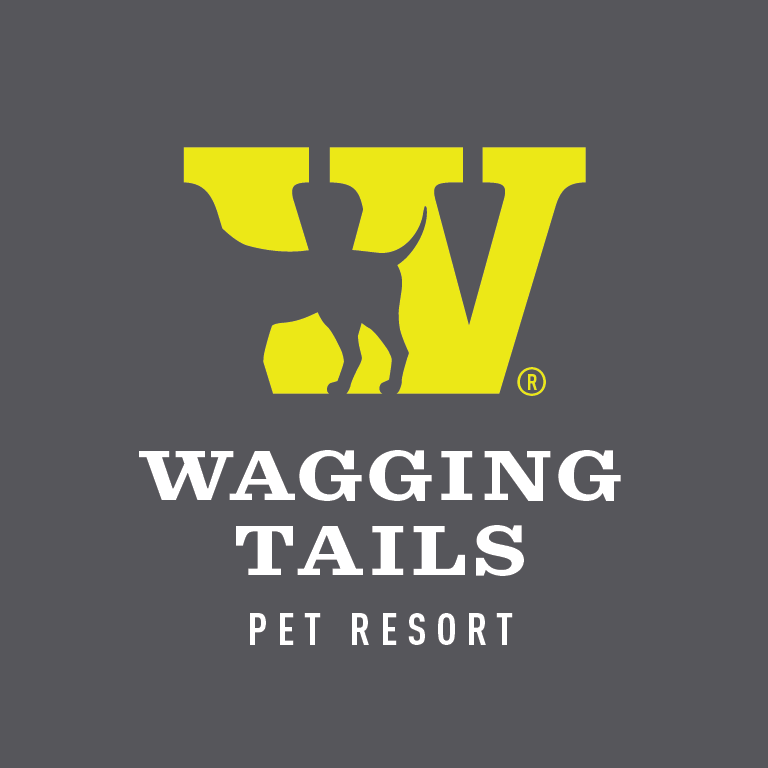Canine Health Corner
Kennel Cough
 Kennel cough, also known as Bordetella, is a highly contagious dog virus. Similar to a cold or virus in humans, dogs with kennel cough typically recover without treatment, but some dogs are at higher risk. It is important know the symptoms so you can help reduce the spread of this virus and seek veterinary care for your dog as soon as possible.
Kennel cough, also known as Bordetella, is a highly contagious dog virus. Similar to a cold or virus in humans, dogs with kennel cough typically recover without treatment, but some dogs are at higher risk. It is important know the symptoms so you can help reduce the spread of this virus and seek veterinary care for your dog as soon as possible.
How Do Dogs Catch Kennel Cough?
Like the human cold virus, dogs can catch kennel cough through aerosols in the air, from direct contact with an infected dog, or through germs on contaminated objects. This makes it highly contagious in boarding facilities, animal shelters, training facilities, and at veterinary clinics. Dogs in frequent contact with other dogs have the highest risk of contracting the virus; young, old, unvaccinated dogs, and dogs with medical conditions are especially vulnerable.
What are the Symptoms of Kennel Cough?
Kennel cough is a form of bronchitis that causes an inflammation of a dog’s voice box and windpipe. The most pronounced symptom of kennel cough is a persistent dry cough that is often accompanied by a “honking” sound. Most dogs appear healthy except for the cough, but others display sneezing, runny nose, eye discharge, foamy phlegm, loss in appetite, and decreased energy. Dogs can also have kennel cough or be carriers of the virus without displaying any symptoms at all.
I Think My Dog Has Kennel Cough, What Should I Do?
Separate your dog from other dogs immediately and contact your veterinarian. While most dogs recover over a few weeks, it is important to involve your vet in their treatment to prevent more serious conditions from developing.
How Is Kennel Cough Treated?
Veterinary treatment of kennel cough varies depending on the age and condition of your pet, as well as the severity of illness. Some infected dogs are isolated from other dogs and the virus runs its course, others receive cough suppressants or antimicrobial prescriptions. Either way, it is important to work closely with your veterinarian to keep your dog comfortable while they recover. Most dogs recover in three weeks, but vulnerable dogs like puppies, seniors, or dogs with medical conditions can take up to six weeks or longer. If your dog has nasal discharge, rapid breathing, refuses to eat or seems lethargic, contact your vet immediately.
Is There A Vaccination for Kennel Cough?
There are three types of kennel cough vaccine: oral, nasal, and injection. Wagging Tails requires a kennel cough vaccination for all canine guests in our facility, but similar to the human flu vaccine and it does not guarantee protection from this illness. Dogs vaccinated against kennel cough often display more mild symptoms if they contract kennel cough. These vaccinations are also not effective if your dog currently has a kennel cough infection.
Vaccinations are typically given once a year, but can be given more often if a dog is at higher risk for kennel cough. Work with your veterinarian to determine which option is best for your dog.
How Is Wagging Tails Trying to Reduce Kennel Cough Exposure?
At Wagging Tails Pet Resort, your dog’s safety is our top priority. We have an extensive cleaning protocol in place; all the playrooms are disinfected daily and suites are fully disinfected between every guest. Additionally, toys, food bowls and water bowls are thoroughly cleaned after every use to reduce the risk of cross contamination. Each of our employees is also trained to recognize the signs of kennel cough in a visiting animal. If we suspect that a dog in our care is sick, it is our policy is to quarantine the animal and seek veterinary treatment immediately to reduce the possibility of spreading illness to our other dogs.
It is important to us to do everything in our power to minimize the exposure risk to dogs in our care. Because kennel cough is so highly contagious and can be spread by dogs not displaying any signs of illness, we also rely on open communication with our clients. By proactively communicating about local outbreaks and educating them on the symptoms to watch for in their own homes, we can work together to reduce the exposure of dogs in our care.

